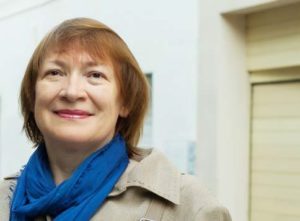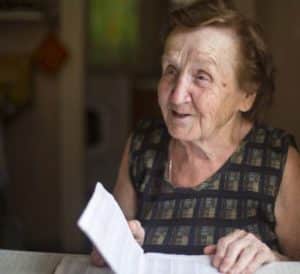We would continue to provide 24/7 urgent and emergency care for everyone living in the Weston area – in a different way.
Mental health services
North Somerset crisis and recovery centre in Weston-super-Mare
The Healthy Weston programme is the vision for joining up services for better care in Weston-super-Mare, Worle and surrounding areas.
As part of the programme, the Bristol, North Somerset and South Gloucestershire Clinical Commissioning Group (BNSSG CCG) is commissioning a North Somerset crisis and recovery centre in Weston-super-Mare.
The centre aims to provide more proactive, person-centred services to support vulnerable people experiencing emotional distress or a mental health crisis, as an alternative to A&E.
In January, Second Step was announced as the provider for the service, which has now been named the Safe Haven Centre.
However, a substantial amount of NHS resource is now focused on supporting clinical and operational colleagues in existing services to respond to COVID-19 (coronavirus). With this in mind, the mobilisation of the physical Safe Haven Centre site for a face-to-face service has been paused.
Mental health and wellbeing remains a high priority for both Bristol, North Somerset & South Gloucestershire Clinical Commissioning Group and Second Step, particularly during this difficult time. As a result, both organisations are working together to introduce a phone-based crisis and recovery service as an interim measure.
This will allow us to retain our recently recruited staff and make best use of their skills and expertise. It also means we will be able to support people during this very unsettling time, when people’s mental health could be at an increased risk of crisis.
Second Step are working closely with colleagues in Avon & Wiltshire Mental Health Partnership (AWP) and The Bristol Sanctuary to rapidly design this new telephone service as quickly as possible. There are a number of issues we need to work through, but our aim is to get an interim telephone service up and running in late spring.
The intention of the phone service is to bring extra capacity to the mental health support offer and reduce pressure on secondary care and crisis teams at this time. The service will differ slightly from the face-to-face centre, catering for direct referrals of adults over the age 18 from AWP.
We do not yet have a date by which the development of a face-to-face service will restart, however; staff and patient safety is our paramount concern and all work is being regularly reviewed to be restarted as soon as possible.
Read more about how we are developing the centreDeveloping the model
In developing the model for the crisis and recovery centre, we have worked with local people, including service users, carers and voluntary sector organisations. We have also worked with system partners from Avon and Wiltshire Mental Health Partnership, the council, ambulance service and Avon & Somerset police.
This included a workshop in March this year where Clarity – North Somerset Independent Mental Health Network (IMHN), facilitated an open-invitation workshop, in partnership with the CCG, to gather input from a range of local people with lived experience of mental illness.
We produced a You Said, We Did document which sets out how we have responded to the issues raised during the workshop, and wider engagement, by making changes to the service specification. This meant that all providers who bid for the service contract had to demonstrate clearly how they planned to fulfil those requirements.
There will be regular updates as the process continues, but if in the meantime you have any questions please contact the Healthy Weston team on 0117 900 2655 or email bnssg.healthyweston.enquiries@nhs.net.
Children’s Urgent Care services
The current children’s urgent care service at Weston Hospital is provided 9am-8pm, Monday to Friday.
A growing number of young families are moving to the area and we want to be able to provide an enhanced local service, which would run seven days a week, instead of five.
Poppy, age 5
Current situation
Poppy has been unwell with a fever. On a Saturday her dad notices she has a rash. He rings 111 and is advised to go to A&E at Weston General Hospital. Poppy waits to be seen in A&E.
As it is the weekend and her condition needs to be monitored, she is transferred by ambulance to Bristol for initial treatment and observation. This is because there are no specialist children’s staff on duty at weekends.
Poppy stays well and is comfortable throughout the night and is discharged home in the morning.
In the future
Children would benefit from having access to specialist children’s staff at Weston General Hospital seven days a week from 8am to 10pm.
Currently specialist staff are only available Monday to Friday from 9am to 8pm Poppy’s mum or dad would be able to take Poppy to Weston where she would be able to be observed and treated if necessary. This would avoid the need for Poppy and her family to have to go to Bristol.
Increasing planned surgery and care
People currently have to travel for some routine and regular outpatient appointments when they could be provided more conveniently closer to home.
We want to provide other types of planned care, such as more complex chemotherapy, at Weston Hospital and closer to where people live. Through our conversations with patient groups and the local community we know that it is improvements like this that really matter to local people.
In the future we also plan to offer a wider range of routine planned surgery at Weston including hip and knee replacement operations and cataract surgery.
Mary, age 62
Current situation
Mary has cancer and is receiving specialist and complex chemotherapy. Every two weeks her husband drives her to Bristol for treatment. Mary often feels under the weather and very tired after chemo and having to travel to and from Bristol makes this worse. Often the treatment clashes with her husband’s work commitments and he can’t pick Mary up after treatment.
In the future
Mary can get her fortnightly chemotherapy at Weston Hospital, now that the hospital offers more planned care. Mary is back home and resting within 15 minutes of finishing treatment. Her husband still usually brings her to the hospital, but he can also get to his work.
As a result of getting treatment locally, Mary has found out about some support groups nearby that she starts to attend. This helps her to meet other people living with cancer and she feels less isolated.
Frailty service
We want to develop Weston hospital as a centre of excellence for frailty, providing a ‘one-stopshop’ for frail older people – bringing a range of professionals such as nurses, doctors, social care and mental health staff together to support people better.
We will also improve discharge from hospital, so that people are able to return home quickly with the right care and support packages in place.
Doris, age 85
Current situation
Doris has had a chest infection for a week, but it is getting worse and she feels very unwell. Her husband takes her to Weston General Hospital where she is seen by a doctor in A&E. Her condition is assessed and she needs to have a course of intravenous antibiotics.
She is admitted to a general ward. The treatment takes five days. As a result of being in a hospital bed Doris starts to lose some muscle strength and she feels unsteady on her feet.
She says she is not confident walking on her own to the bathroom and is anxious about returning home. Although her chest infection has now been treated, she needs to have a short stay in a nursing home to help her rebuild her independence.
In the future
Patients like Doris would benefit from the new frailty service which would have more professionals who are specialists in the care of frail and older people.
They would work together to help patients remain independent, confident, and in control of their care, for as long as is possible. On her arrival at Weston General Hospital, Doris would be seen and assessed by a frailty.



